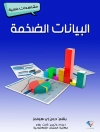Proceedings from the 2013 LTEC conference in Kaohsiung, Taiwan. The papers examine diverse aspects of Learning Technology for Education in Cloud environments, including social, technical and infrastructure implications. Also addressed is the question of how cloud computing can be used to design applications to support real time on demand learning using technologies. The workshop proceedings provide opportunities for delegates to discuss the latest research in TEL (Technology Enhanced Learning) and its impacts for learners and institutions, using cloud technologies.
Table of Content
Section 1: E-learning Case Study.- A Case Study on the Self-efficacy and Online Help Seeking Tendencies of EFL Learners.- Teaching object-oriented programming in first-year undergraduate courses supported by virtual classrooms.- Intelligent Classroom with Motion Sensor and 3D Vision for Virtual Reality e-Learning.- Service Innovation Framework for electronic portfolio appropriation for a technology-based university.- Section 2: E-learning and E-learning Model.- Technological pedagogical content knowledge in pre-service teacher education – research in progress.- A Conceptual Model for the Shareability of e-Courses in China.- With Blended Learning Information Operational System Design In Response To Globalized Logistics Talent Training.- E-Learning Requirement in University.- Association Link Network based Automatic Test Generation Scheme.- Quality standards for E-Learning in Vocational Education and Training – The Certified European E-Tutor.- The Need to Support Independent Student-Directed Learning.- Communities of Practice as an improvement tool for Knowledge Sharing in a multicultural learning community.- Short Review of the Missing Links in Teacher Research Models for Educational Technology Acceptance in Literature.- Are there positive learning effects of online access to peer-generated questions?.- Section 3: MOOC.- What (use) is a MOOC? .- MOOC in Latin America: Implementation and Lessons Learned.- Section 4: Learning in Cloud.- A pedagogical Cloud for reusability, interoperability and portability of pedagogical indicators.- The Experience of Using e-Learning Platform in Cloud.- Use of new technology in higher education: A migration to a cloud-based learning platform.- An enhanced approach to retrieve learning resources over the cloud.- Preventing domestic violence via education in cloud computing service.












